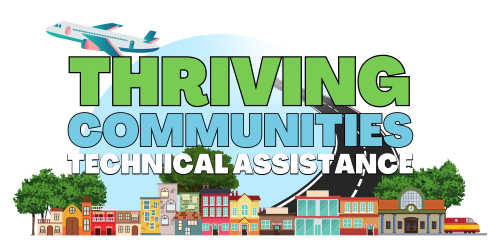Now Open! Cities Ready for Infrastructure Partners
Post by Kyle Funk, National League of Cities senior program specialist on infrastructure, transportation, and solutions
As municipalities apply for and receive funding under the Bipartisan Infrastructure Law (BIL), officially known as the Infrastructure Investment and Jobs Act (IIJA), programs, they are partnering with local, state and federal advocates along with the private sector to make residents’ lives better. This mirrors the request of Congress and the Biden administration to foster as much partnership as possible in funding BIL programs. While a lot of work occurs between the federal government and municipalities, there is a high amount of infrastructure investment occurring between state and local governments. All projects small and large require partnerships at the local level to service the American people.
Broadband Equity, Access and Development Program (BEAD)

States are receiving their first round of broadband funds from the BEAD program, which will support broadband infrastructure in areas with no or insufficient broadband service. With these funds, they are required to submit a first-round draft plan of how they intend to fund broadband service to every unserved location in the state by the end of this year. These plans are required to have a public comment period, which allows municipalities and state leagues to provide feedback on a variety of factors, including how the state plans to run their RFP process for subgrantees, how the state intends to run its challenge process and how grant applications will be scored.
State Municipal Leagues are getting involved in this work, too. Daniel Lightfoot, an Intergovernmental Relations Representative at the League of Minnesota Cities, was asked by Governor Walz to serve as one of 15 participants on the Governor’s Task Force on Broadband. The Task Force advises the executive and legislative branches on broadband policy and funding strategies to assist the state in meeting its broadband goals, addressing the digital divide and bolstering partnerships to ensure equitable deployment and broadband access. The Task Force also will assist in advocating for additional funding to the Border-to-Border Broadband Grant program which is the main grant program for municipalities and their partners to receive state funding for broadband projects. In the past, the Task Force has helped to create adjustments that make it easier for municipalities to apply for grants and worked to create a new program to address the unique needs of the hardest-to-serve communities.
Lightfoot encourages municipalities around the country to continue to engage their state. “Cities are closest to the customer and know their communities best,” he said, “so it remains crucial that cities are engaging with state policymakers and state agencies to better inform successful implementation of historic infrastructure funding and ensuring the rollout of these programs, many of which are administered at the state level, are successful and ultimately result in historic infrastructure improvements in communities across the state.” Communities interested in engaging their states can learn more about the points of contact and broadband grant funding disbursed to their state on the official Internet for All site.
National Electric Vehicle Infrastructure Formula Program (NEVI) 
The NEVI program within BIL was established to create a national Electric Vehicle charging infrastructure system along key corridors throughout the country by providing states with formal funding. To receive formal funds each state was asked to create a charging plan that was approved by the Joint Office of Energy and Transportation. While not required, each state was encouraged to engage municipalities in the creation of their plan and provide local governments to apply for state formula funds to deploy EV charging in their communities. NLC looked at these plans to see which states engaged municipalities or state-municipal leagues and are allowing municipalities to apply for funds. The states that did both include Alaska, Arkansas, Connecticut, the District of Columbia, Idaho, Illinois, Iowa, Kansas, Louisiana, Maine, Maryland, Michigan, Nebraska, North Dakota, Oklahoma, South Dakota, Tennessee, Washington and Wyoming. Nebraska, for example, reached out to both small population and Justice40 communities in their state plan outreach including the cities of Omaha, Lincoln, Grand Island, Kearney, North Platte, Sidney and South Sioux City. With a law change in 2022, Nebraska’s Department of Transportation can deliver projects, including EV charging with NEVI funds through public-private partnerships.
Milford and Slaughter Beach, Del.: A Thriving Communities Partnership Program
The city of Milford, Del., a Justice40 Community1 serving approximately 12,000 residents, and the town of Slaughter Beach, Del., serving approximately 200 residents, won a Thriving Communities Technical Assistance grant. The Thriving Communities program is one in which local partners come together to apply and receive technical assistance to assist them in infrastructure projects that increase mobility, reduce pollution, and expand affordability to disadvantaged or under-resourced communities who have traditionally been unable to apply for federal funding. To receive this grant in the first place, the two municipalities used the free Grant Assistance Program at the University of Delaware. This state-funded program offers technical assistance at any stage in the grant process and can help with writing, implementation, reporting and coaching through drop-in office hours. The two municipalities plan to use their $259,000 technical assistance grant to support the design of a bicycle and pedestrian pathway to connect the two local governments’ amenities.

With infrastructure funds still flowing, cities, towns and villages continue to look for partners for projects. Local leaders continue to gather letters of support for their projects, especially from other elected officials, including those at the federal level with shared constituencies. And they continue to engage their state officials, especially at the planning stages of projects or during funding allocations with formula funds that went to states. To see a full list of local government award winners under BIL, visit NLC’s Rebuilding America Dashboard.
This blog is part of a larger National League of Cities (NLC) series celebrating the second anniversary of the Infrastructure Investments and Jobs Act, also known as the Bipartisan Infrastructure Law. This series also covers NLC’s Rebuilding American Dashboard and themes such as energy, climate and the environment, safety, and economic return on investment. To view the full series, check out the NLC CitiesSpeak blog and view NLC’s Ready to Rebuild webpage to stay up to date on all things infrastructure.
1 A Justice40 Community is defined by the Administration as a disadvantaged community that is marginalized, underserved, and overburdened by pollution. Justice40 indicators in this blog series are categorized by the municipalities’ census tracts being all Justice40 qualifying or the project being in or adjacent to a designated Justice40 census track.


